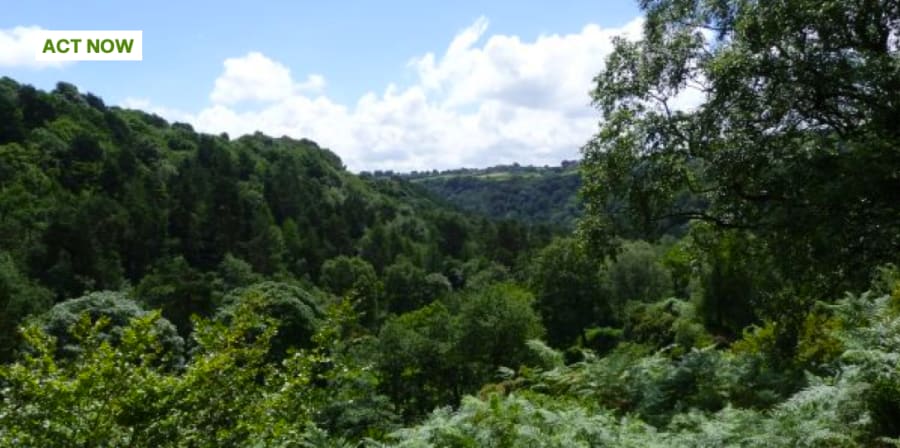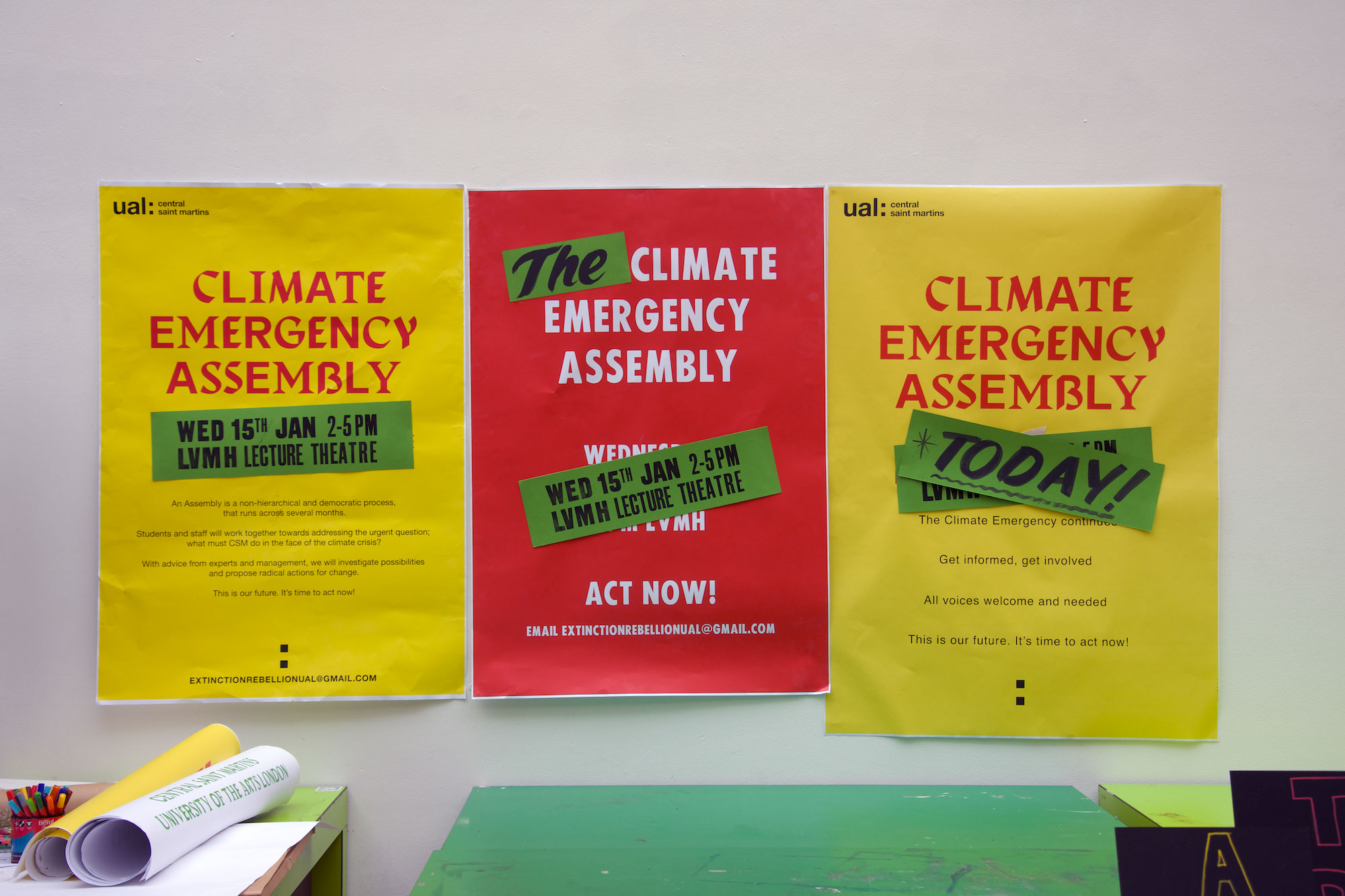Yesterday saw the second Climate Emergency Assembly at which urgent and inspiring proposals were presented to the College and University.
Staff and students from Central Saint Martins and across UAL came together as a community to debate and develop how change might happen within the institution. Following the first Assembly, groups were set up with specific interests – namely Curriculum, Carbon Neutral, Zero Waste, Procurement and Divestment. The aim of the second Assembly was for those groups to present proposals with details of the required skills, budget and decision-making to turn them into reality. Once all the proposals had been shared, the audience got moving in a collective experiment run by Heather Barnett, Pathway Leader in MA Art and Science, inspired by the murmuration movements of starlings. The proposals were then fed back on by the assembly in order to maximise their impact before being submitted to the University’s senior management.

Members of the non-hierarchical community opened the event outlining the challenges and opportunities inherent in this emergent process:
“This work has been an experiment in collective collaboration and knowledge sharing. It has started to transcend existing pedagogical and professional structures… It has required creative practitioners to confront administrative and managerial challenges. At the same time, it has asked employees of the College and University to make room for creative speculation, restlessness, a desire for more urgent transformation... What will be shared this afternoon are the results of this work. Some are practical or problem-solving proposals. Some challenge existing solutions while others complement them. Others are more values-based or behavioural in form. Still others offer glimpses of visionary transformation that will hopefully inspire the weary. All are presented in good faith based on the conviction that they will make a difference.”
Collective opening statement read by Kate Keara Pelen, Creative Producer – College Culture and Community, Margot Bannerman, tutor, BA Fine Art, Jake Stephenson, M ARCH student, Fran Hayes, BA Fine Art student and George Barker, PA to Dean of Academic Programmes

Curriculum proposals included an introductory unit for incoming students to consider their role as creatives within the context of climate and ecological crisis. This was followed by a proposed annual one-day teaching and making event across disciplines to build a broad, decolonised resource exploring ethics including climate justice, as well as systems, materials and processes.

For Carbon Neutral, one group highlighted inefficiencies within the College building and infrastructure as well as the idea of a personal carbon footprint calculator for all staff and students to increase awareness and personal responsibility. Another pushed for a reduction in flights taken by staff and students, the encouragement of land travel and suggested creating a UAL forest (and outdoor learning space) as a carbon-offsetting solution.
In Procurement and Divestment, proposals included placing sustainability at the heart of supply chains and more broadly to challenge the appropriate level of funding that any institution should be putting forward to combat the climate crisis.

There were many proposals to tackle waste, often centred around workshops and materials. Initiatives suggested include a waste inventory, a swap shop and a universal material coding system so students can easily identify the impacts of using certain materials. Responding to the food waste from the canteen, one group presented a composter that would reduce waste but also be part of a regenerative system by feeding the soil for the College’s terrace garden.

“There are voices and perspectives absent from this [self-selecting] conversation. There are those not in this room who may feel overwhelmed to the point of paralysis by the scale of the crisis, and others who still do not feel the urgency and need for each of us to be part of a collective response.
But in order for this work to be truly transformational, it will take each and every one of us... We are one of the world’s leading art and design higher education institutions, designing better and creating is our reason for being.
We have some of the world’s most innovative and imaginative thinkers, do-ers and educators gathered under one roof. The task now is to turn those skills towards the very heart of how we operate on all fronts in the face of environmental catastrophe.”
Collective opening statement read by Kate Keara Pelen, Creative Producer – College Culture and Community, Margot Bannerman, tutor, BA Fine Art, Jake Stephenson, M ARCH student, Fran Hayes, BA Fine Art student and George Barker, PA to Dean of Academic Programmes
In response to the feedback from the wider community, the proposals will continue to be refined. They will then be handed over to decision-makers across the University who will respond in the coming weeks.


